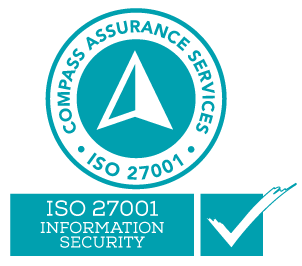What features are most important when choosing an LMS for your RTO?
Working with Learning Management Systems (LMS) as a learning designer across three large institutions for 10 years as well as being a student using different systems has really helped me to understand what's required of an LMS for staff and students.
This article discusses the top questions RTOs should be asking and the features they should be demanding from their LMS.
Mobile friendly: Does the LMS work on all devices?
This should be your first area of investigation when looking for an LMS for your RTO. Ensure you investigate whether the system supports mobile and what browsers it supports. There are so many LMS platforms that do not support mobile devices, or large parts of their system that are not available on mobile devices at all. I ran a trial for a large university in 2020 and one of the LMS products had an app but large parts of the LMS content did not show on the app for students meaning students were missing important information for their courses! Another popular LMS used by many Australian universities hides iFrame videos coded into content on Safari browsers or Mac devices using Google Chrome, pretty problematic when thinking about the number of Mac and iPhone users!
The first iPhone was released in June 2007, today in 2021, 14 years on, just over 50% of website traffic is mobile phones with a prediction that this will increase a further 25% by 2025 (Chaffrey 2021). LMS Platforms should be on board across all of their content!
| What Ammonite offers: LMS that works on all devices, including mobile |
|---|
|
Compliance and mapping: how does the LMS meet these requirements?
Australian Skills Quality Authority (ASQA) has requirements RTOs must meet across the areas of marketing and recruitment, enrolment, support and progression, training and assessment and completion (Australian Skill Quality Authority 2015).
| What Ammonite offers: compliance and mapping |
|---|
|
Analytics and data: where's student data stored and what analytics does the platform offer?
Data will talk if you are willing to listen
Your RTO should explore whether the system data storage complies with Australian data and privacy laws for student data. For Australian RTOs this means checking that the LMS servers and student data are in Australia.
Your RTO should also investigate what reporting systems are available on the system and ensure reporting aligns with the sort of reporting your RTO needs.
| What Ammonite offers: Analytics and data |
|---|
|
Features, upgrades: how are features implemented and bugs repaired within the system?
Investigate whether the system is hosted or whether your RTO will need to self host the system (self hosting can be very costly).
Find out whether the LMS provider is responsible for upgrades in the system.
Explore whether other help resources are available for users (a lot of LMS systems expect institutions once on board to create their own help resources, run their own help systems, run their own upgrades - and all of this without even responding to any suggestions for new features).
| What Ammonite offers: features, upgrades and help |
|---|
|
Want to learn more?
Contact our friendly team to show you what Ammonite can do for your RTO.
References
Australian Skills Quality Authority. (2015). Users’ guide to the Standards for RTOs 2015. https://www.asqa.gov.au/standards
Chaffey, D. (2021, March 30). Mobile marketing statistics compilation 2021. https://www.smartinsights.com/mobile-marketing/mobile-marketing-analytics/mobile-marketing-statistics/

